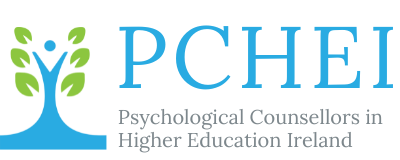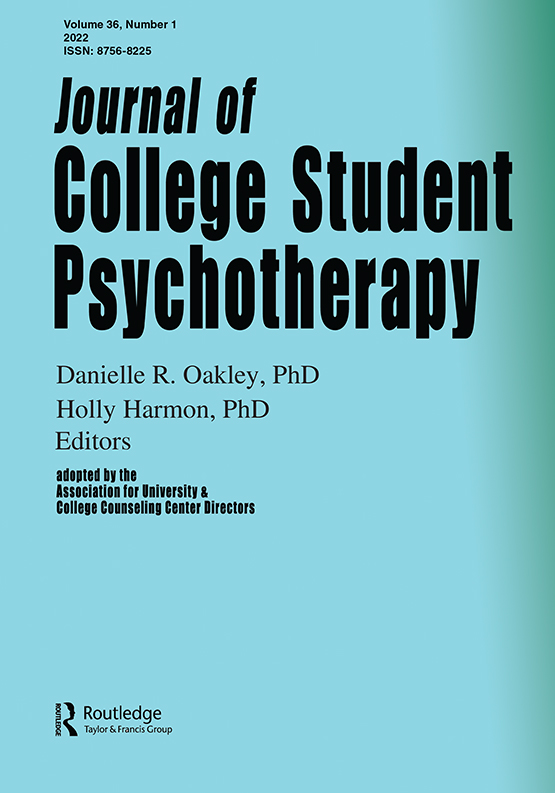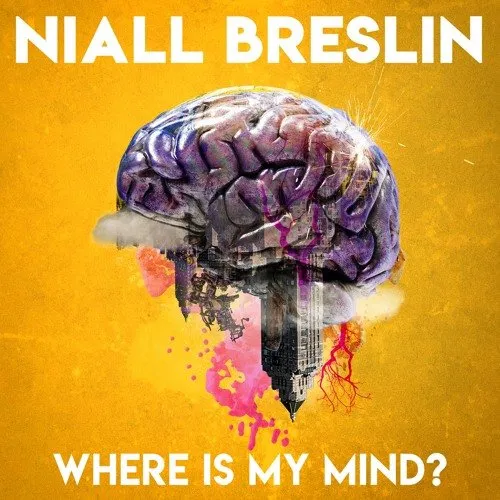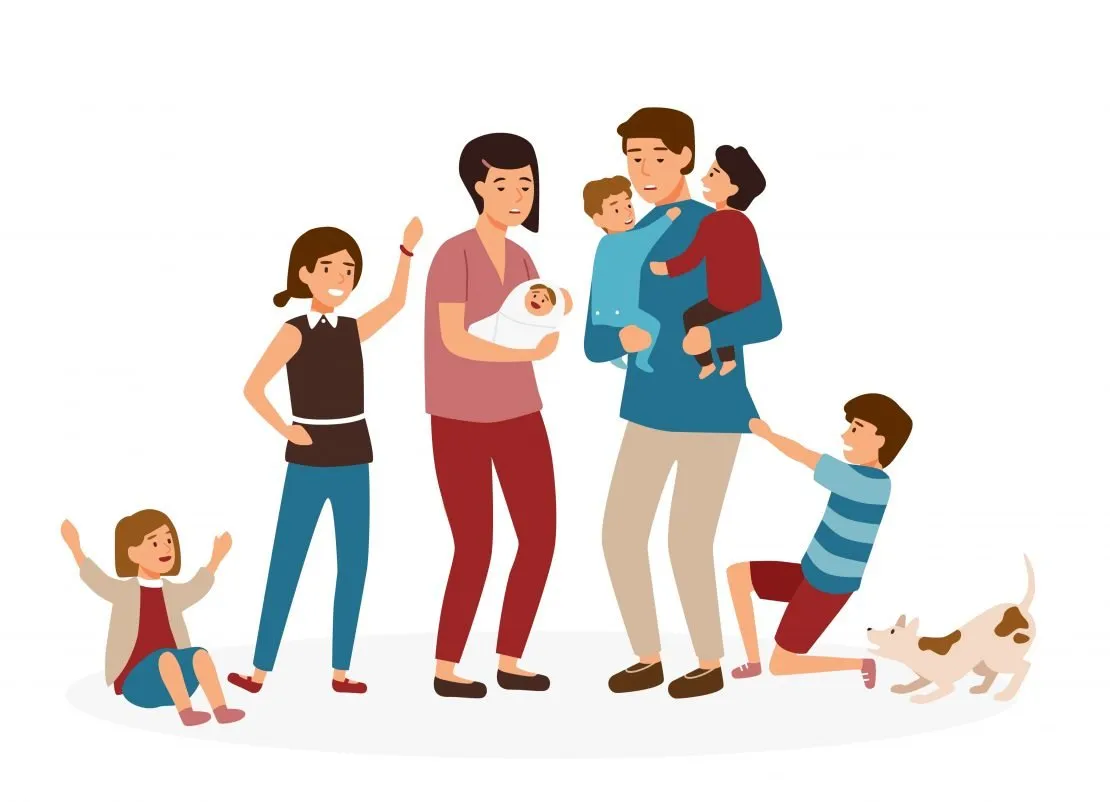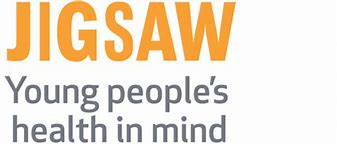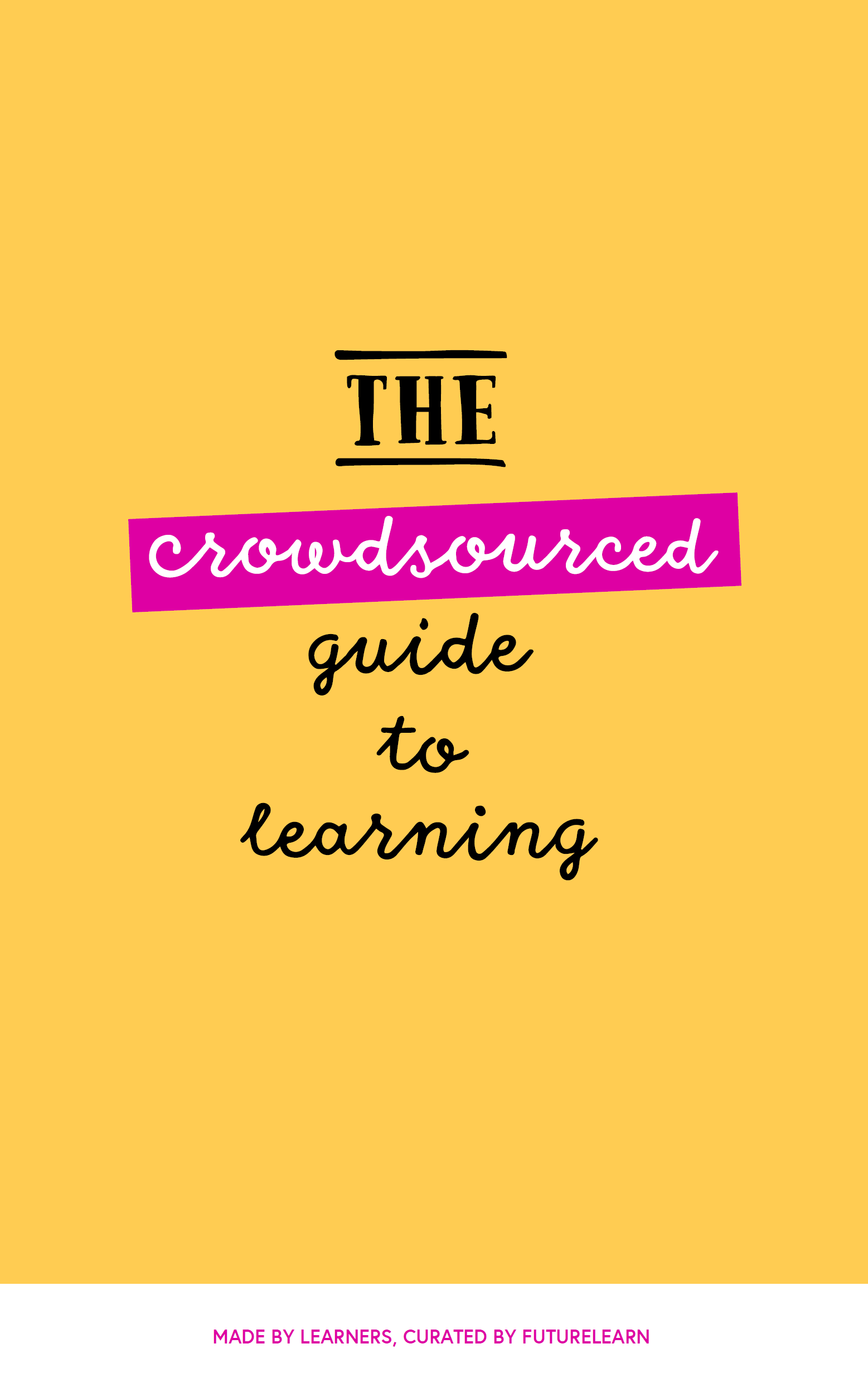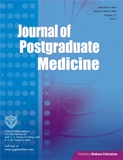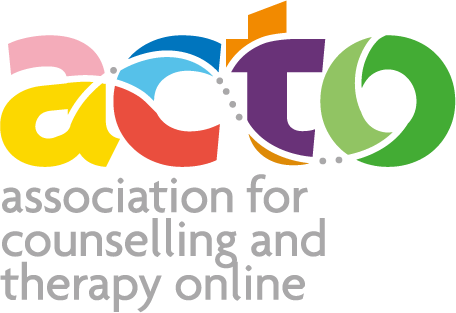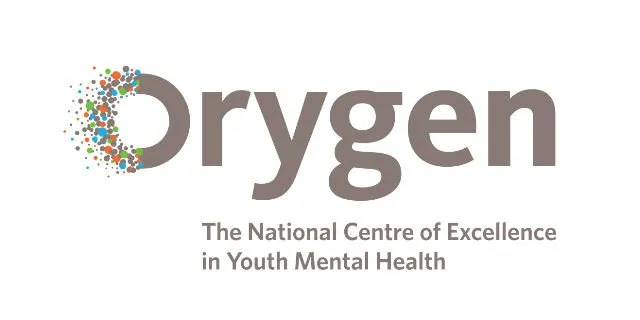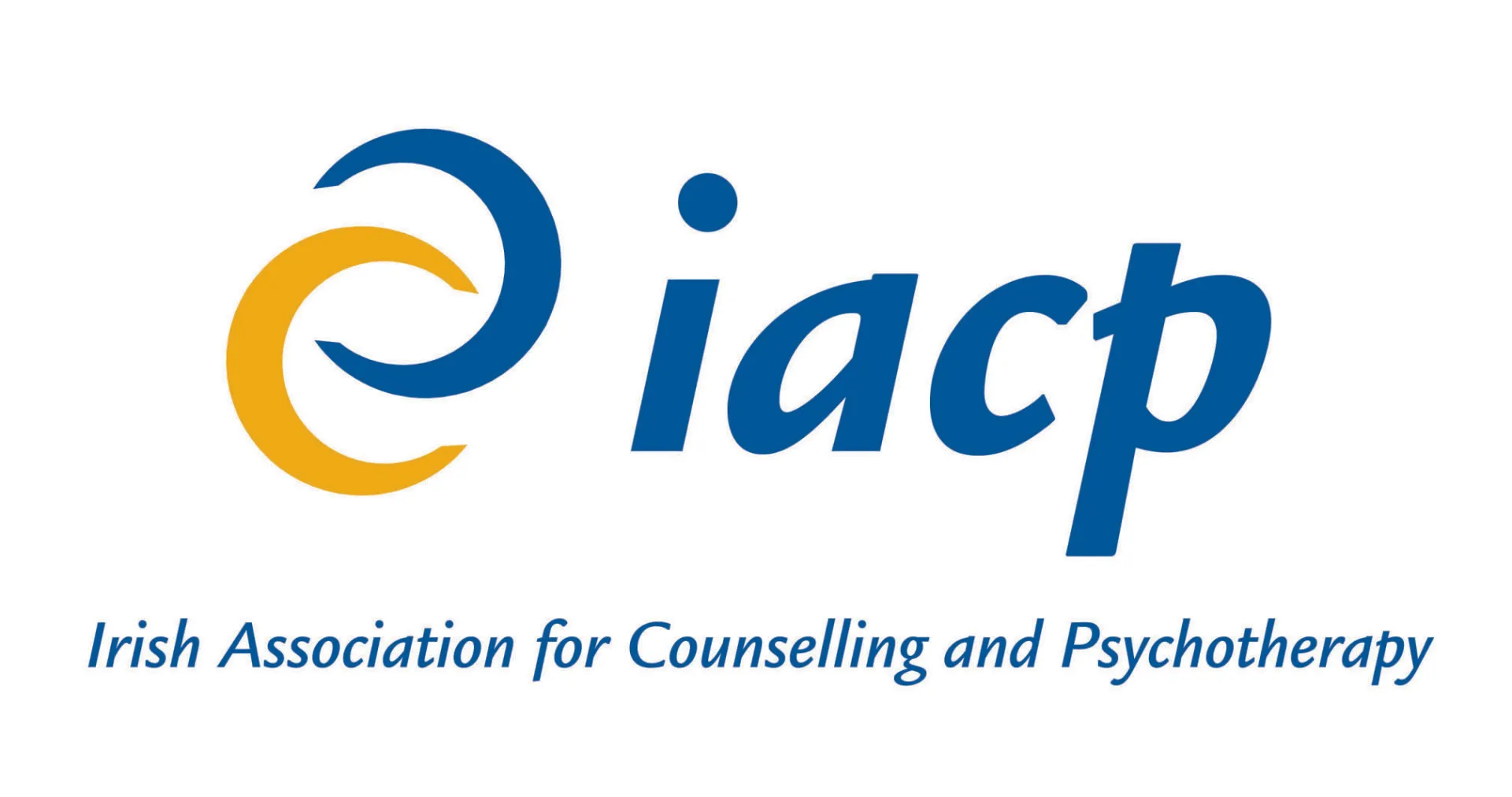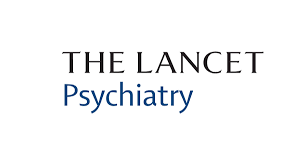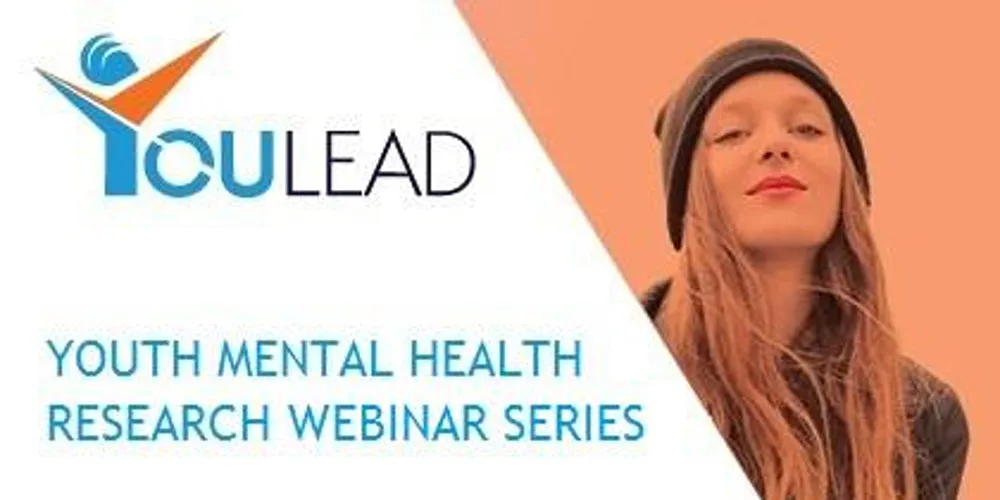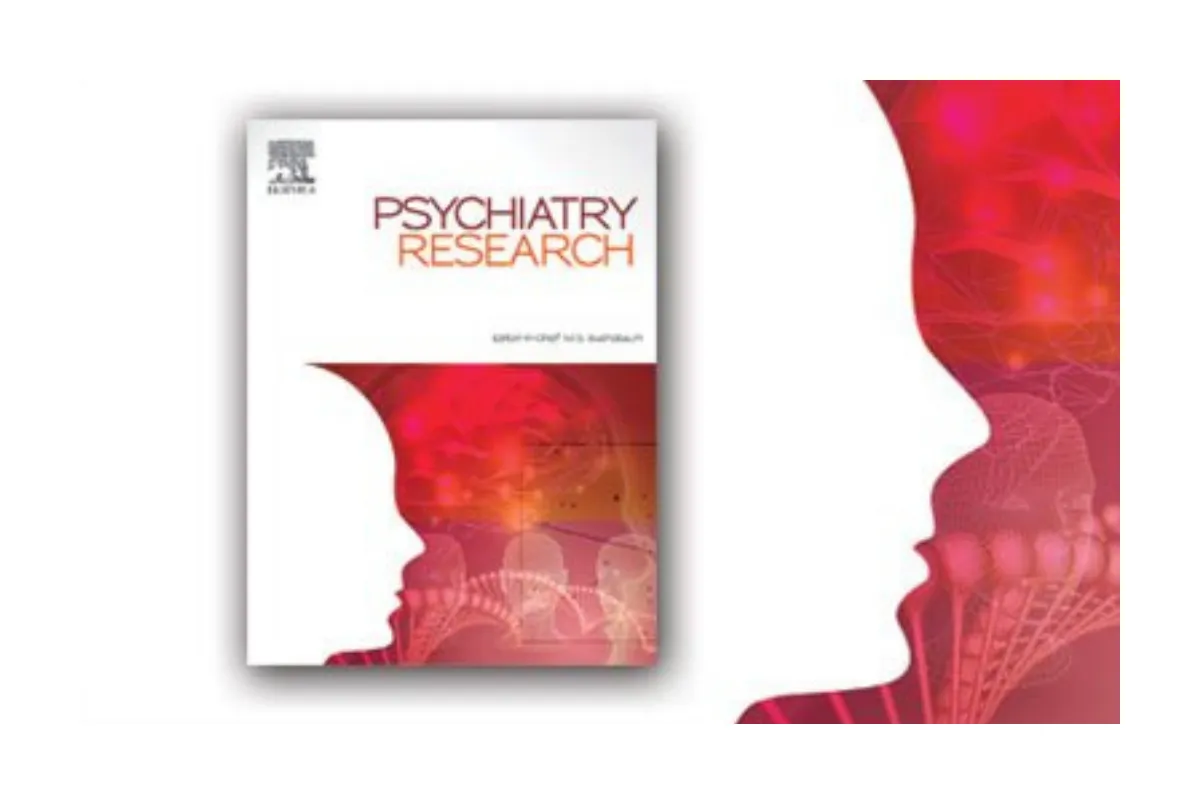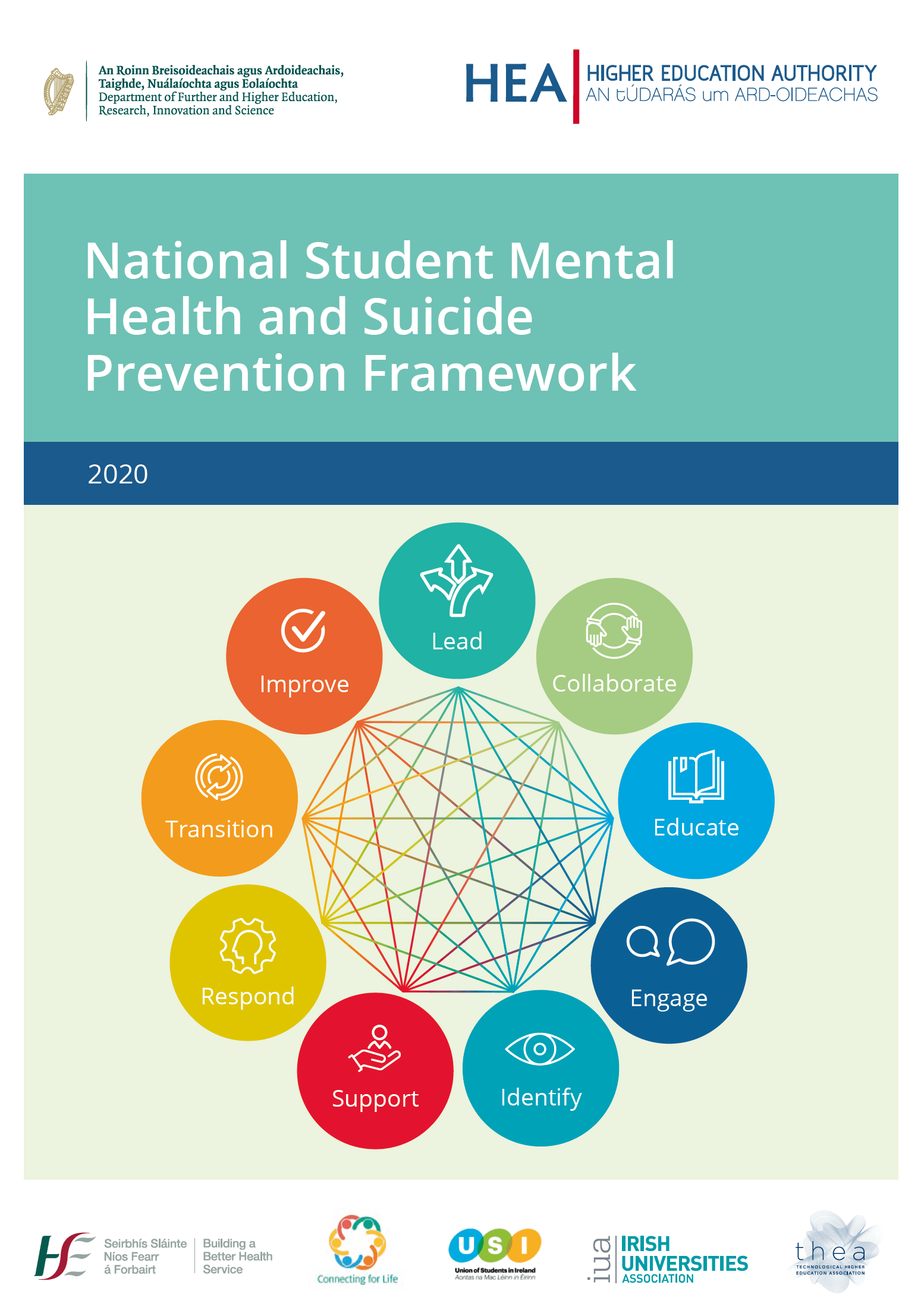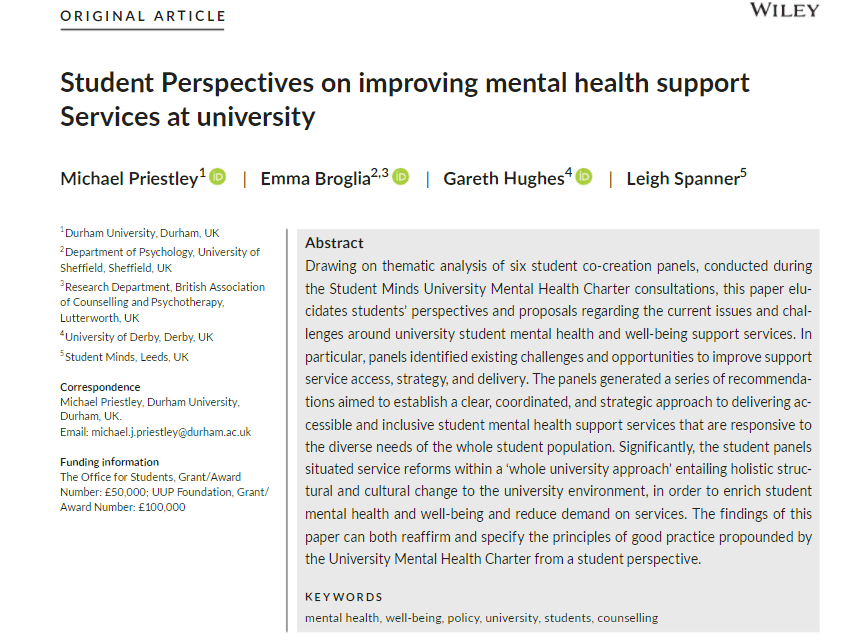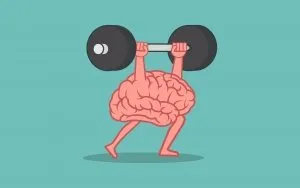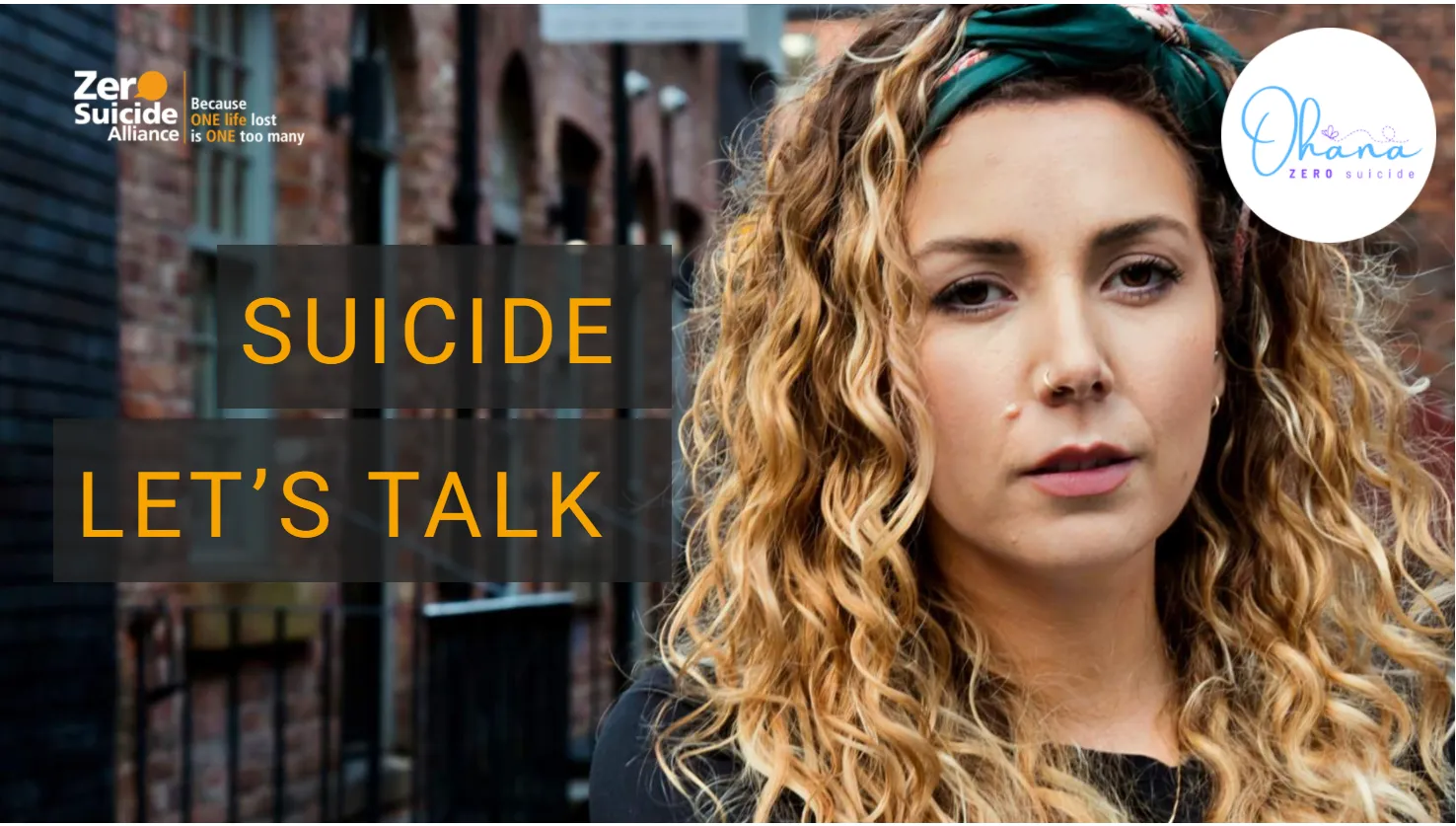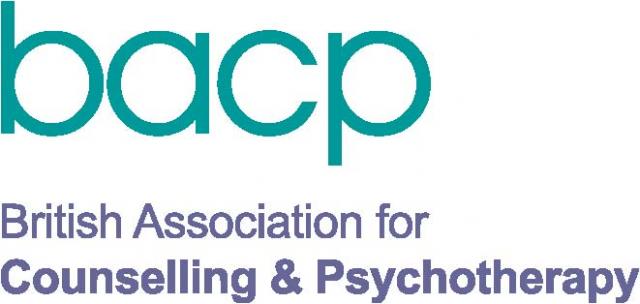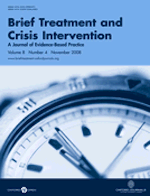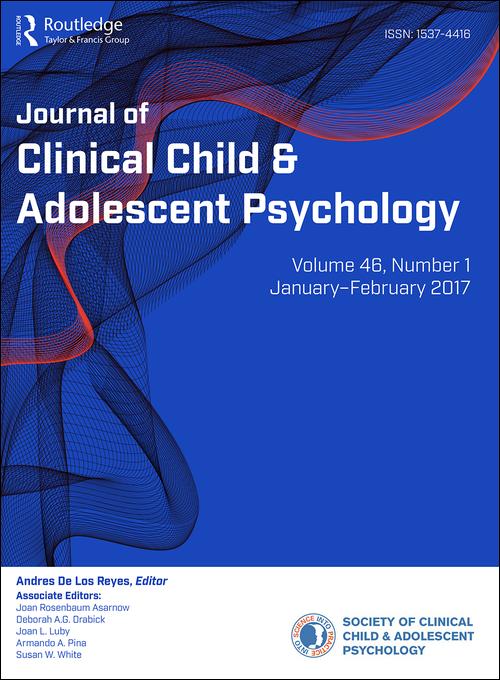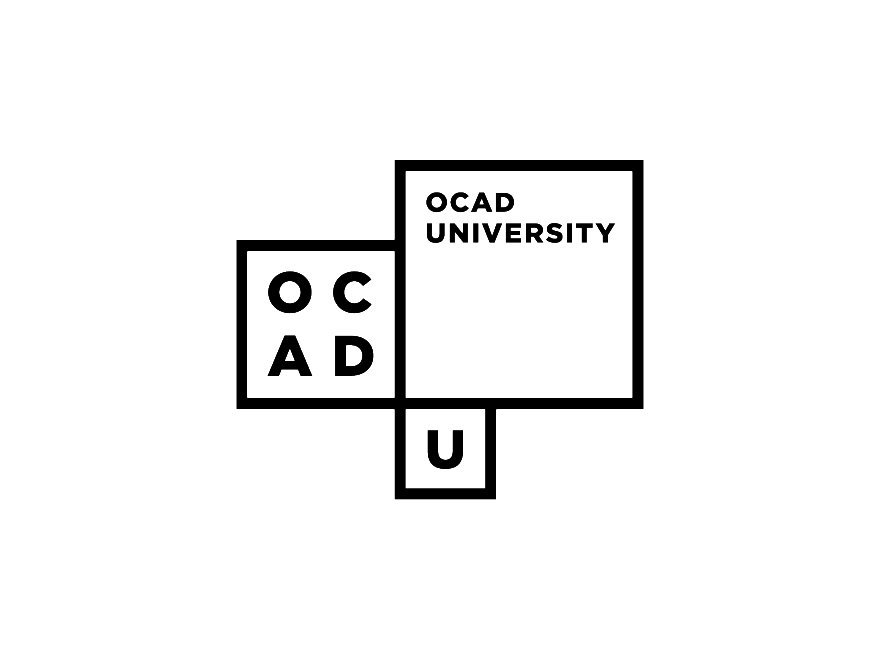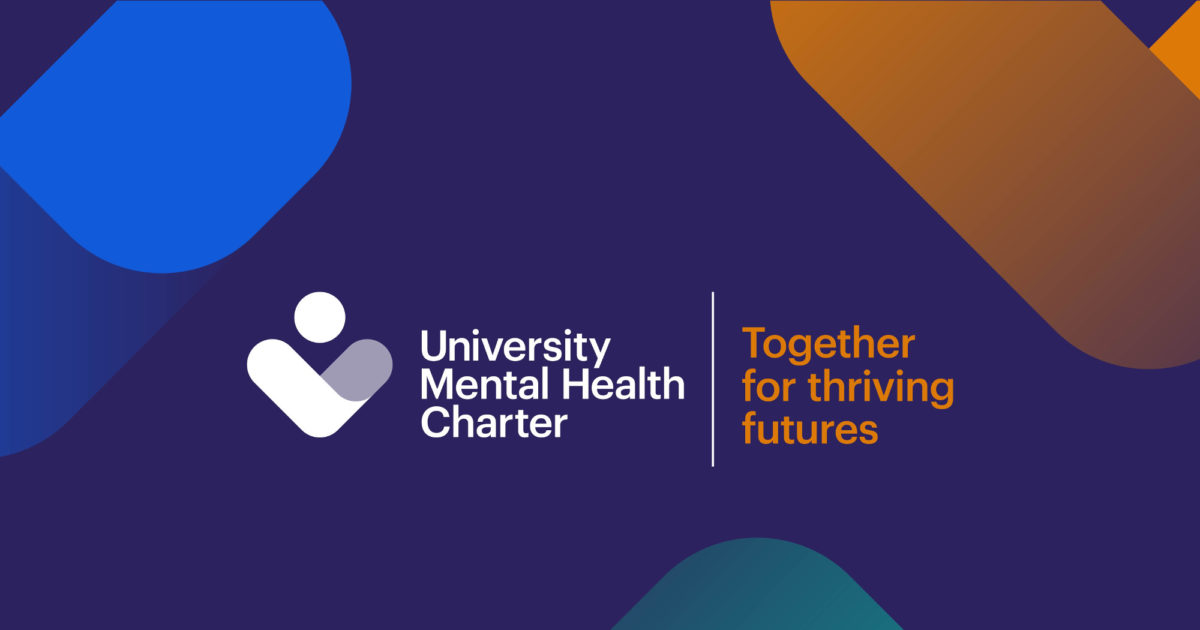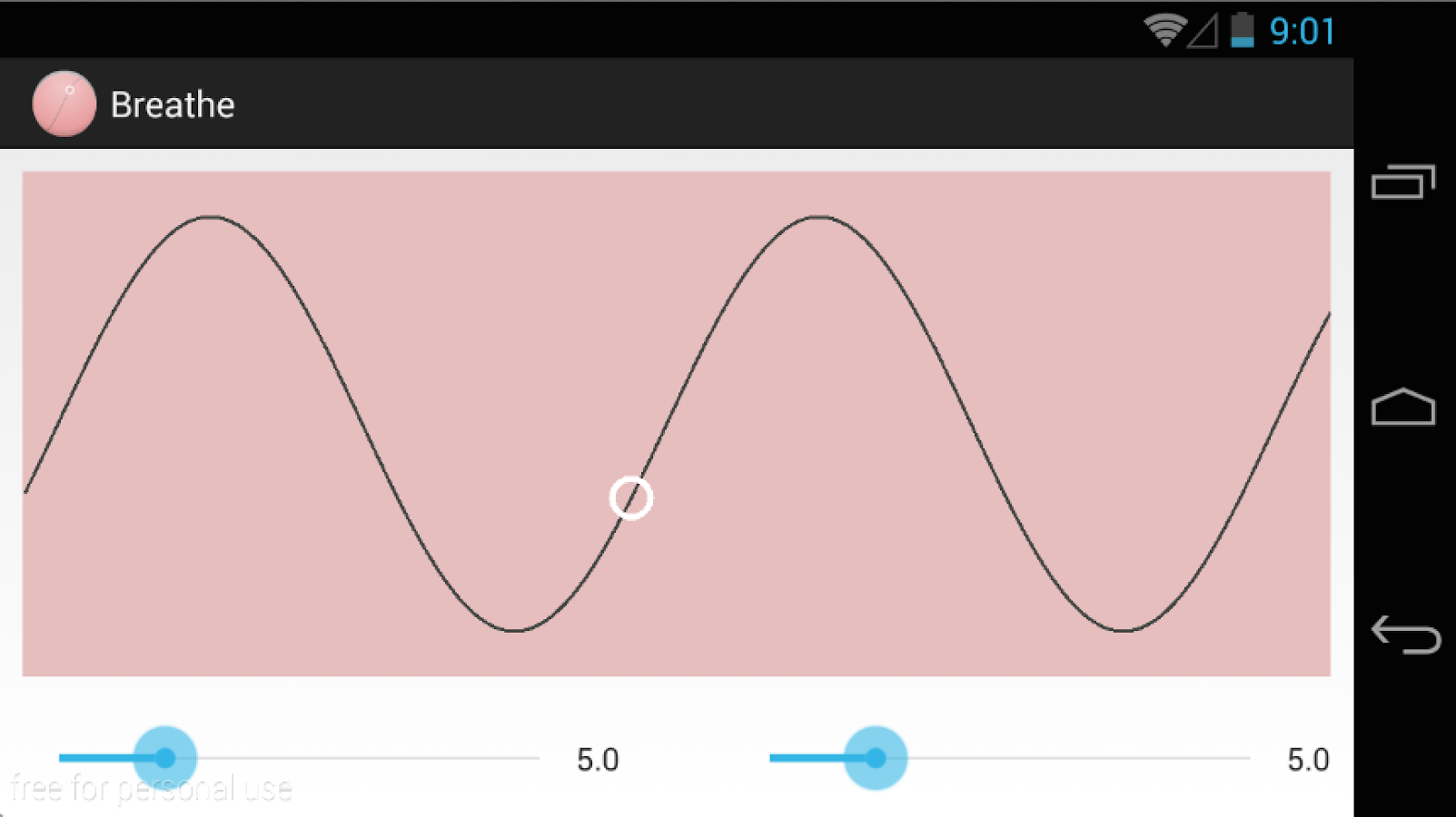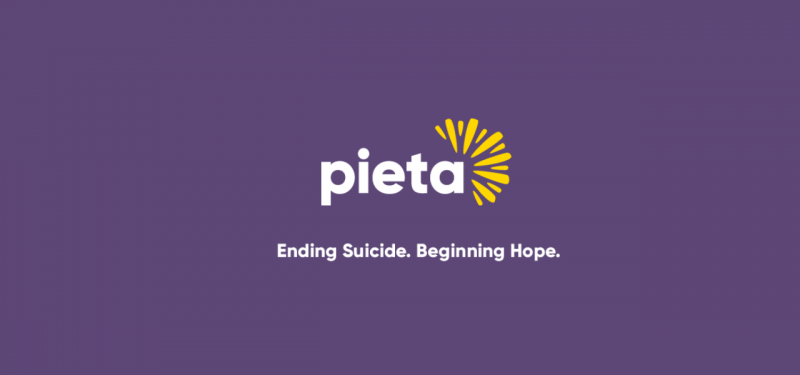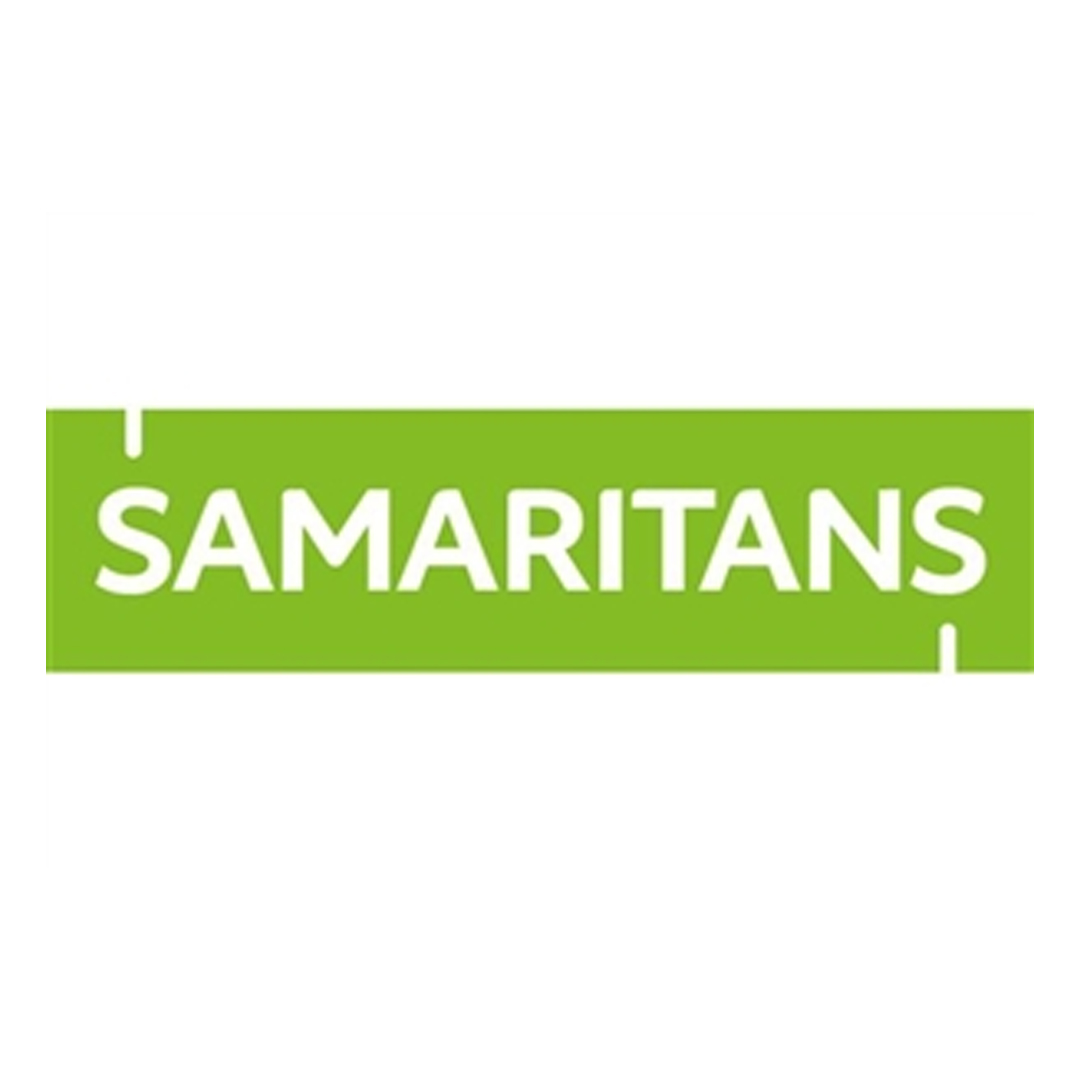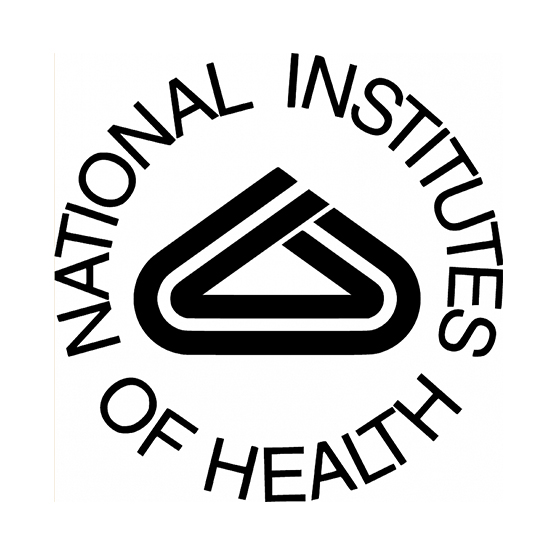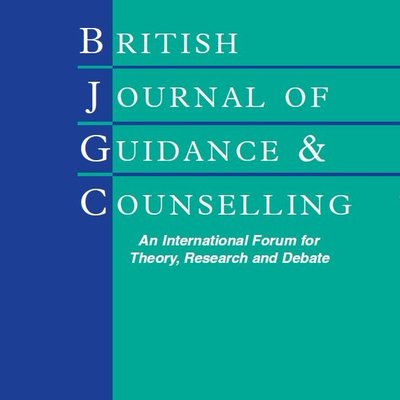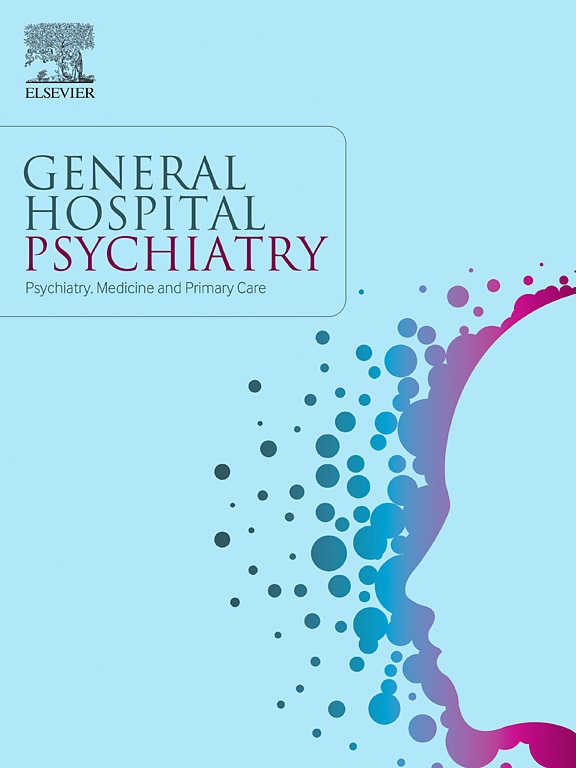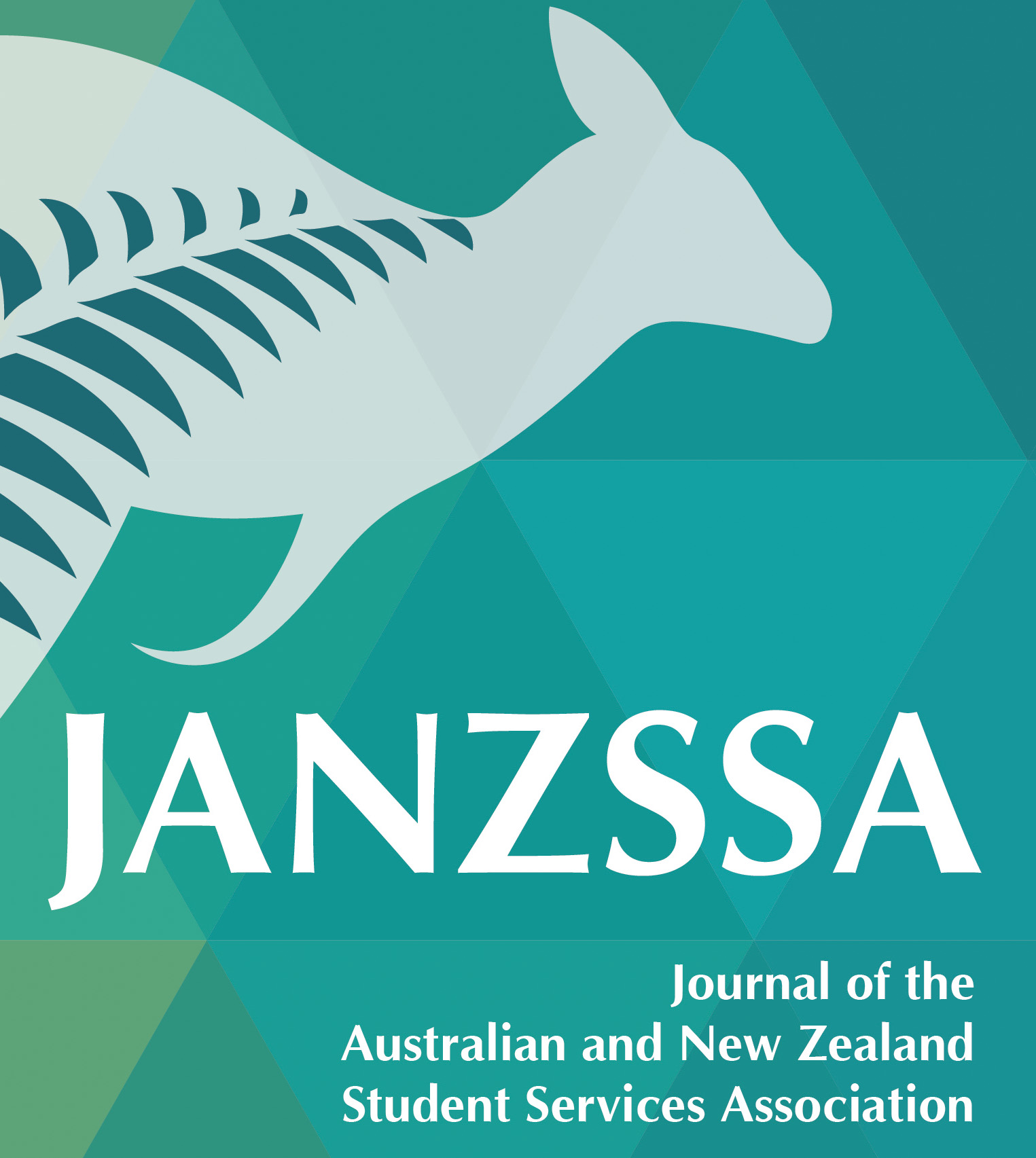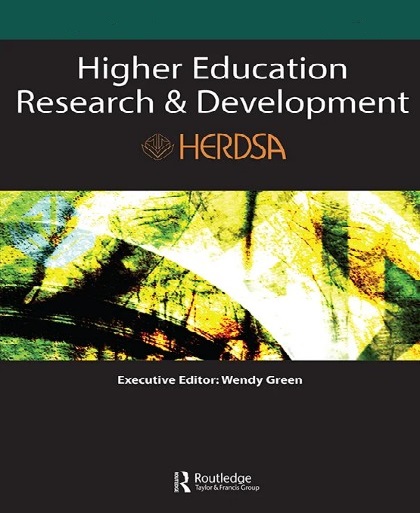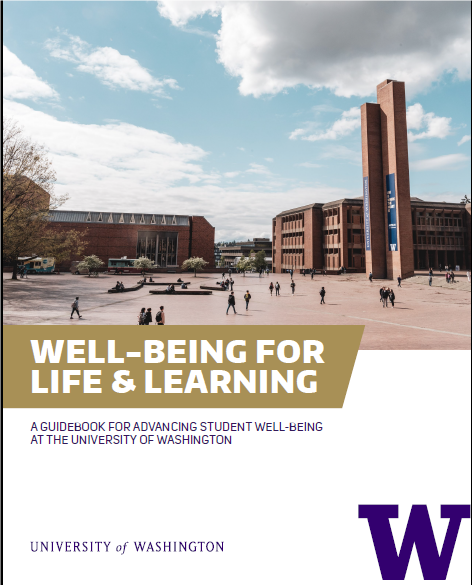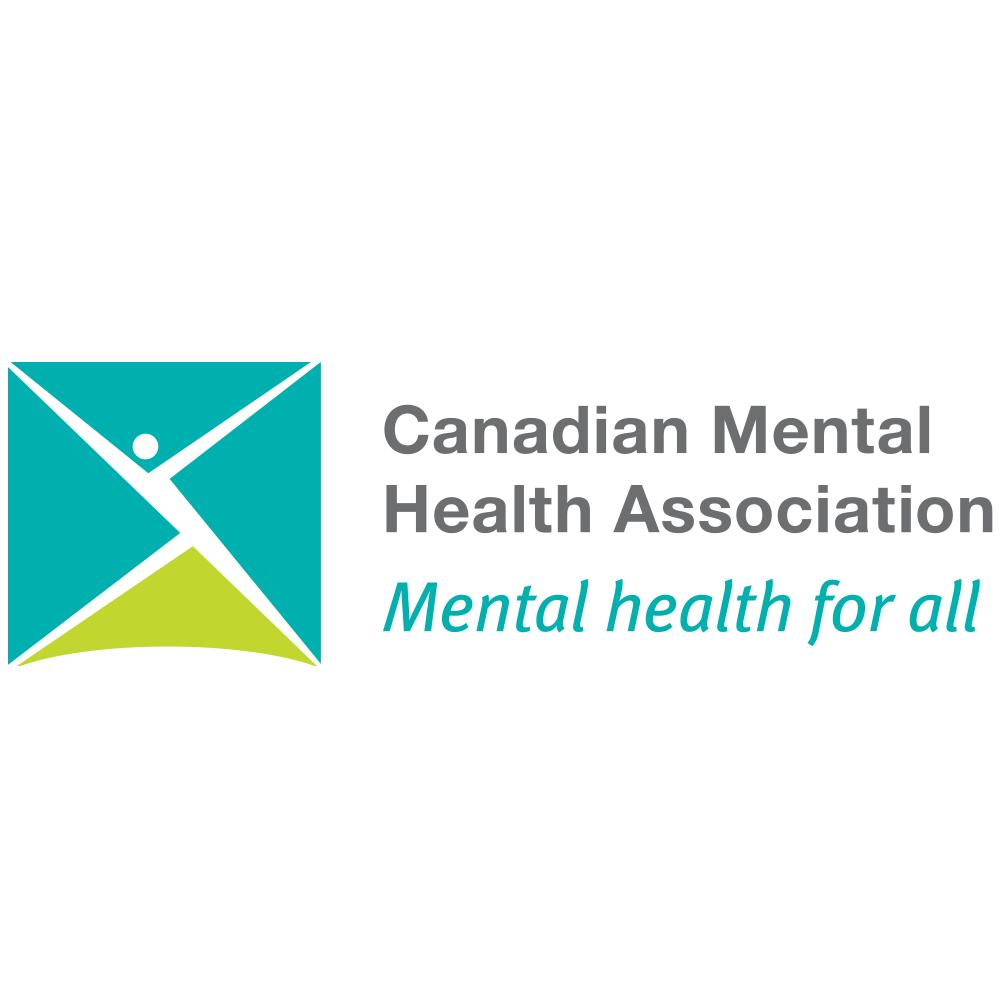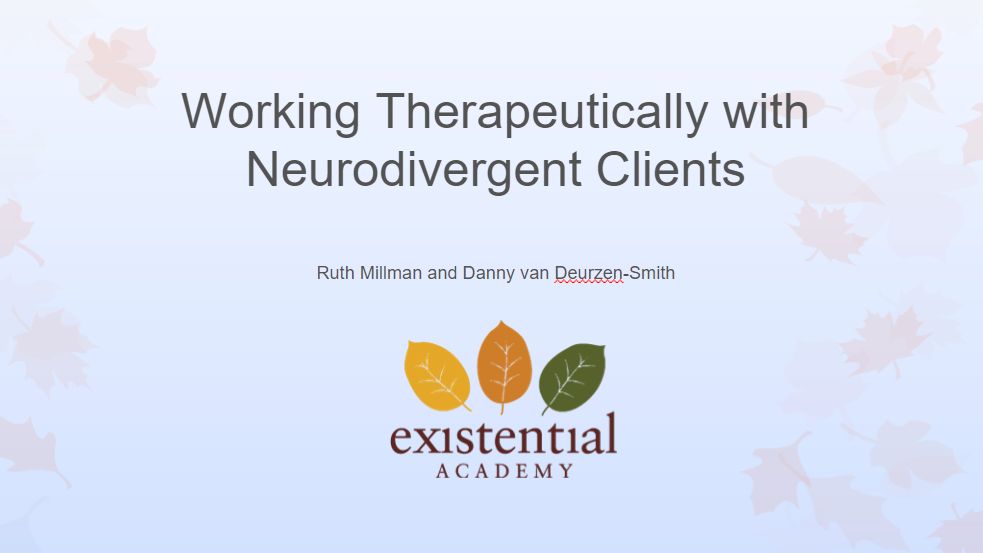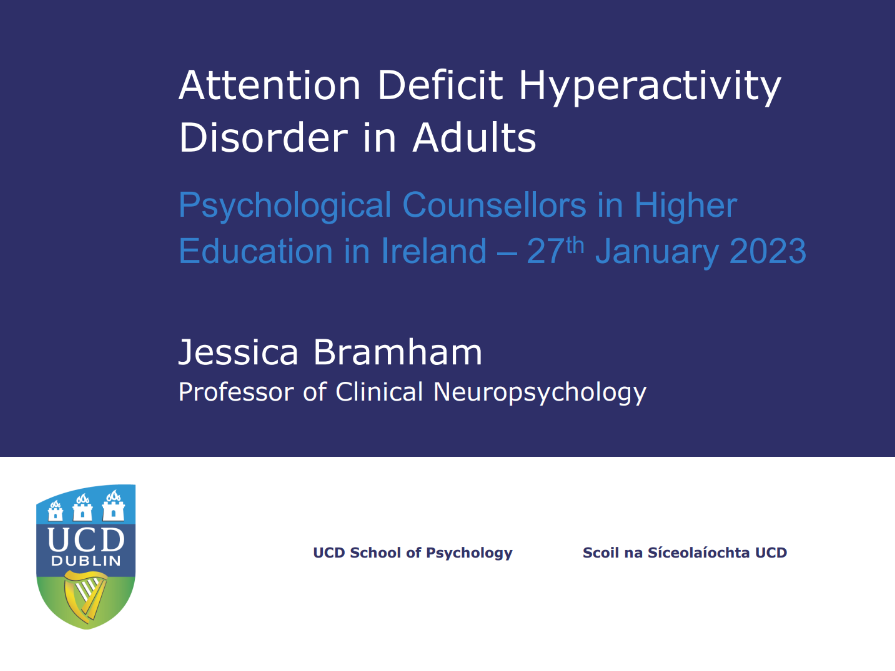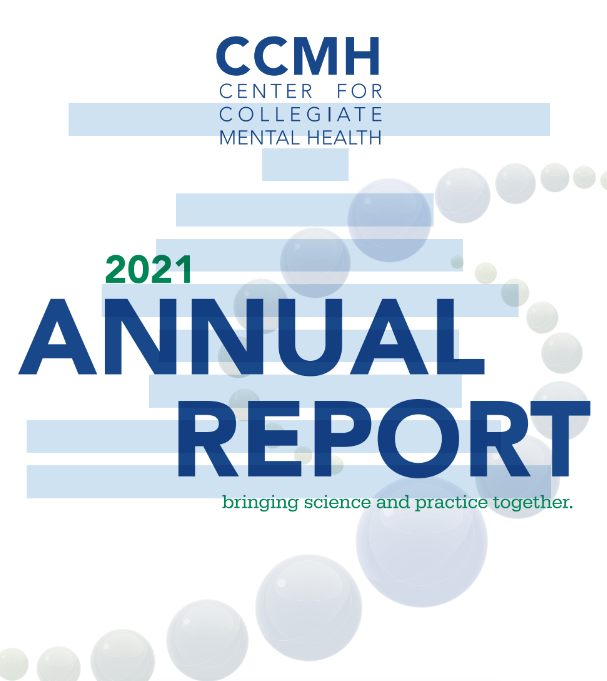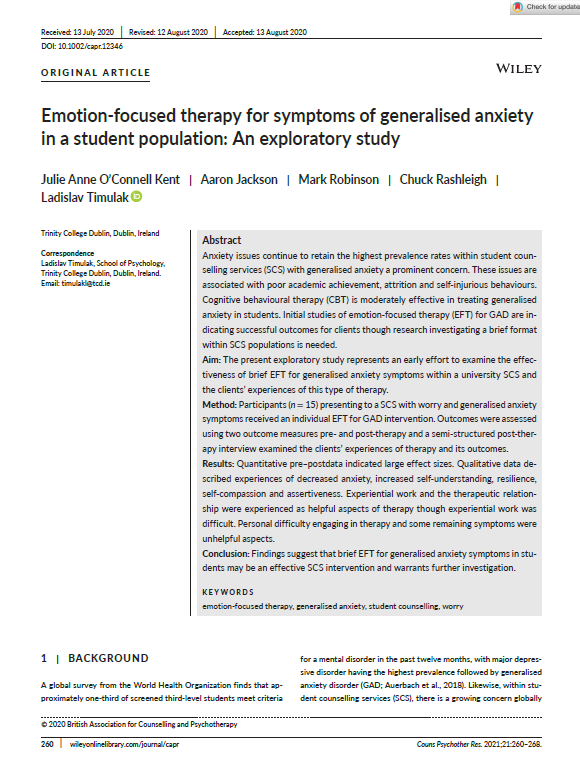PCHEI Members Area
Resources
Access key documents, guides, and archived materials.
The Comprehensive Counseling Center Model
The authors outline a four-factor model and philosophy for college mental health services that addresses the loss of comprehensiveness in some centers due to changes in organizational structure. Given research on demand for services and retention of those seen in centers, emphasis is placed in particular upon the value of consultation, outreach, and training work across the entire campus community. The model challenges some assumptions made by proponents of integrated care, including its definition, and illustrates the benefits of establishing and maintaining a fully comprehensive college counseling service.
Learn More
Usage of eMental Health & eHealth supports by young adults during COVID-19 lockdown
Results of a survey conducted late May 2020
Learn More
Student Mental Health: Life in a Pandemic
A series of 3 reports from the UK on student mental health in a pandemic
Learn More
The High Stakes of Outsourcing in Health Care
Outsourcing in health care has become increasingly common as health system administrators seek to enhance profitability and efficiency while maintaining clinical excellence. When clinical services are outsourced, however, the outsourcing organization relinquishes control over its most important service value: high-quality patient care.
Learn More
Center for Collegiate Mental Health (CCMH) Annual Report 2021
CCMH is a multidisciplinary, member-driven, Practice-Research-Network (PRN) focused on providing accurate and up-to-date information on the mental health of today’s college students. CCMH strives to connect practice, research, and technology to benefit students, mental health providers, administrators, researchers, and the public.
The collaborative efforts of nearly 700 college and university counseling centers and supportive organizations have enabled CCMH to build the USA’s largest databases on college student mental health. CCMH actively develops clinical tools, reports, and research using this data.
Learn More
The collaborative efforts of nearly 700 college and university counseling centers and supportive organizations have enabled CCMH to build the USA’s largest databases on college student mental health. CCMH actively develops clinical tools, reports, and research using this data.
10 Habits of Happy People - How To Be Happy
Learning how to be happy by understanding the habits of happy people.
Learn More
10 Tips for Learning Online
National Forum for Teaching and Learning: 10 Points to remember when learning online and supporting students in the context of COVID 19.
Learn More
Wake up/Wind down
A twice daily podcast to help clear your mind at the start of the day and wind down at night.
Learn More
Where is My Mind?
How to navigate the manic, always-on, head-melting world we live in.
Learn More
Managing Family and Relationship Conflict During Self-isolation or Lockdown
Tips to manage family and relationship conflict during lockdown
Learn More
Advice for Young People Dealing with Family Conflict
Advice on conflict within families that can be a big source of distress for young people.
Learn More
The Crowdsourced Guide to Learning
This 60-page e-book offers useful advice on how to start learning, organise your studies, remember what you’ve learnt, keep motivated and learn with other people.
Learn More
Best Possible Self Workshop
A workshop from the Greater Good Science Center at Berkeley centered around asking students where they want to be when they are 40.
Learn More
The psychological impact of quarantine and how to reduce it: rapid review of evidence
Stressors included longer quarantine duration, infection fears, frustration, boredom, inadequate supplies, inadequate information, financial loss, and stigma.
Learn More
Understanding community psychosocial needs after disasters: Implications for mental health services
Acute traumatic stress may be a normative response to life threat and there is a residual minority of survivors who will continue to experience chronic PTSD and their needs can be easily overlooked.
Learn More
PCHEI Conference 2020
Presentations from the PCHEI Conference 2020
Learn More
Centre for Clinical Interventions
The Centre for Clinical Interventions (CCI) is a specialist clinical psychology service in Western Australia. It has four core areas of business:
Develops and provides evidence-based treatments to adults experiencing complex anxiety, mood and eating disorders.
Conducts clinically applied research to improve existing psychological interventions.
Provides training and supervision for health practitioners in evidence-based psychological interventions.
Develops evidence-based online resources to support practitioners delivering psychological interventions, as well as individuals seeking self-help materials to improve their mental health.
Learn More
Develops and provides evidence-based treatments to adults experiencing complex anxiety, mood and eating disorders.
Conducts clinically applied research to improve existing psychological interventions.
Provides training and supervision for health practitioners in evidence-based psychological interventions.
Develops evidence-based online resources to support practitioners delivering psychological interventions, as well as individuals seeking self-help materials to improve their mental health.
Self-Care When Working Online
How to maintain a responsible ‘presence’ online and the importance of ‘netiquette’ or the rules of online etiquette
Learn More
Clinical practice in digital technology and youth mental health the digital age
Clinical practice in digital technology and youth mental health the digital age: does digital technology work in youth mental health settings?
Learn More
IACP recommended approach for online counselling and psychotherapy
The IACP guidelines are relevant to all practitioners engaging in distance therapy.
Learn More
How mental health care should change as a consequence of the COVID-19 pandemic
The unpredictability and uncertainty of the COVID-19 pandemic could increase the risk of mental health problems and exacerbate health inequalities.
Learn More
Speak Out
Minister Harris launches Speak Out – an online and anonymous tool for students and staff to report violence and sexual harassment
Learn More
Why, What, How – Towards a National Student Mental Health and Suicide Prevention Framework
3-minute abstract presentation by SynthSCS for the NUIG YouLead Youth Mental Health Research Webinar
Learn More
The psychological impact of the COVID-19 epidemic on college students in China
The mental health of college students is significantly affected when faced with public health emergencies, and they require attention, help, and support of the society, families, and colleges.
Learn More
National Student Mental Health and Suicide Prevention Framework
National Student Mental Health and Suicide Prevention Framework for higher education in Ireland
Learn More
Student Perspectives on Improving Mental Health Support Services at University
Drawing on thematic analysis of six student co-creation panels, conducted during the Student Minds University Mental Health Charter consultations, this paper elucidates students’ perspectives and proposals regarding the current issues and challenges around university student mental health and well-being support services. The panels generated a series of recommendations aimed to establish a clear, coordinated, and strategic approach to delivering accessible and inclusive student mental health support services that are responsive to the diverse needs of the whole student population and a ‘whole university approach’ entailing holistic structural and cultural change to the university environment, in order to enrich student mental health and well-being.
Learn More
University of Pennsylvania Resilience Skills course
The Penn resilience programme offers a free course University of Pennsylvania Resilience Skills that covers the foundational research in resilience, including protective factors such as mental agility and optimism.
Learn More
Self-Compassion Practice
An activity from the Greater Good Science Center at Berkeley to help students acknowledge their stress, feel less isolated, and be kind to themselves.
Learn More
Ohana suicide awareness training
Ohana is a free online suicide awareness training from the zero suicide alliance that takes 20 minutes to complete.
Learn More
Irish Suicide Bereavement Survey
You are invited to participate in a first-of-its-kind study which aims to explore the experiences and support needs of adults who have been bereaved by suicide in Ireland. This survey will provide valuable information on the experiences of those who have been bereaved by suicide and the supports they found helpful.
Learn More
University mental health funding will only scratch the surface of need for support
A Freedom of Information request carried out by BACP found UK universities spend an average of just £39 per student on mental health support. This is particularly disappointing when compared to £2,690 per student spent on marketing
Learn More
E-mental health - State of the art & opportunities for Ireland
This report provides a resource on eMental health practice and evidence to support developments in this field in Ireland that can enhance mental health services, facilitate user access, and improve outcomes. The report includes some examples of the many eMental health applications and services now becoming available.
Learn More
What interventions improve college and university students’ mental health and wellbeing? A review of review-level evidence
The aim of this review is to identify which interventions improve college and university students’ mental health and well-being. It addresses the following review questions:
What is the current evidence on interventions to improve the general mental health and well-being of college and university students?
What does the evidence tell us about the effectiveness of current interventions, and what interventions are likely to be the most effective?
Learn More
What is the current evidence on interventions to improve the general mental health and well-being of college and university students?
What does the evidence tell us about the effectiveness of current interventions, and what interventions are likely to be the most effective?
Summary of the evidence base for psychological interventions in the treatment of mental disorders in young people
This document summarises the evidence-based interventions for psychological interventions in the treatment of mental disorders in young people aged 12-25 years.
Learn More
A comparison of multi-component systems approaches to suicide prevention
Comparison of the Australian approach to suicide prevention, Lifespan, to other suicide intervention models.
Learn More
Time to take self-harm in young people seriously
A short overview of current state of affairs in relation to self-harm and suicide research in the UK.
Learn More
Student mental health and wellbeing: Insights from higher education providers and sector experts
The study sought to explore approaches to supporting students’ wellbeing and mental health, the range of services available to students, data collected on the prevalence of mental health difficulties and levels of wellbeing, and evidence gaps. The research involved engagement with expert stakeholders, case studies with HE providers, and online surveys with senior staff responsible for student health and wellbeing (undertaken summer to winter 2019)
Learn More
Psychoeducation as Evidence-Based Practice: Considerations for Practice, Research, and Policy
This paper describes psychoeducation and its applications for mental health and health
professions across system levels and in different contexts by reviewing the range of
applications that have appeared in the recent literature. The theoretical foundations of
clinically based psychoeducation are reviewed and the common elements of practice are
identified.
Learn More
professions across system levels and in different contexts by reviewing the range of
applications that have appeared in the recent literature. The theoretical foundations of
clinically based psychoeducation are reviewed and the common elements of practice are
identified.
Evidence Base Update of Psychosocial Treatments for Self-Injurious Thoughts and Behaviors in Youth
The current review provides an evidence base update of psychosocial treatments for self-injurious thoughts and behaviors (SITBs) in youth. A systematic review of 26 Randomised Control Trials.
Learn More
Embedding resilience within the tertiary curriculum: a feasibility stud
This study evaluates the feasibility of embedding a strength-focused resilience-building seminar within a university curriculum. Participants were 247 students enrolled in an undergraduate psychology subject. The Staying on Track seminar, consisting of six building blocks for resilience, was delivered within a normal lecture period.
Learn More
A Clinician’s Guide to Low Intensity Psychological Interventions (LIPIs) for Anxiety and Depression
Chapter 1 describes different types of LIPIs that services may wish to consider using with their clients, along with some guidance about how to match LIPIs to clients’ needs. Chapter 2 presents more detail about completing a LIPI assessment and case formulation, along with a case formulation template and case examples for several clinical problems. Chapter 3 illustrates how clinicians can use their case formulations to implement targeted psychological tools and techniques within a LIPI. Case examples, a treatment planning template, and an example treatment plan are provided. Finally, Chapter 4 provides guidance on designing group LIPIs, which may be helpful when clinicians receive regular referrals for similar problems. A template for planning and designing a group LIPI is provided, along with case examples
Learn More
Mental health and COVID-19 Information and resources
As the number of cases of COVID-19 increases, so does the associated anxiety. For the general public, the mental health effects of COVID-19 are as essential to address as are the physical health effects. And for the one in five who already have mental health conditions – or the one in two who are at risk of developing them – we need to take personal, professional, and policy measures now to address them. To aid individuals and communities during this time, MHA has compiled a range of resources and information. You can learn more about mental health and COVID-19 from our blogs and webinars.
Learn More
Prevention and promotion in Mental health
This document – based on the deliberations of the WHO meeting, highlights some of the basic issues in the field of prevention and promotion in mental health with special reference to the evidence-base. It also outlines the role of WHO in advancing current knowledge and disseminating information among Member States, especially among developing countries. It is hoped that the information given here will assist in wider utilization of appropriate and effective interventions on prevention and promotion towards reducing the burden of mental disorders and in enhancing the mental health of populations.
Learn More
Prevention and Treatment of Anxiety, Depression, and Suicidal Thoughts and Behaviors Among College Students
The guide presents five evidence-based programs and practices that address the prevention and treatment of common mental health concerns: gatekeeper trainings, mindfulness-based stress reduction, acceptance and commitment therapy, cognitive behavioral therapy, and dialectical behavior therapy
Learn More
Mental Health and prevention: Taking local action for better mental health
This document is intended to support local areas to take positive and much needed action to improve public mental health and prevent mental health problems. This resource has been written to highlight and build upon the good work already taking place in local areas, to provide ready access to the evidence and propose effective and practical solutions.
Learn More
Policy approaches to post-secondary student mental health
This report aims to support institutional policy development and review around student mental health by providing a scan of policy approaches in post-secondary institutions across Canada and the United Kingdom. The report is intended for a wide variety of administrators and practitioners working in the field of campus mental health, though it may also be useful for student groups that are currently engaged with campus mental health organizing and advocacy.
Learn More
The University Mental Health Charter
This mental health charter sets out an ideal approach to improve the mental health outcomes for the whole university community and also outlines a quality improvement scheme that will recognise and reward universities that demonstrate good practice.
Learn More
The happiness lab
Yale professor Dr. Laurie Santos has studied the science of happiness and found that many of us do the exact opposite of what will truly make our lives better. Based on the psychology course she teaches at Yale — the most popular class in the university’s 300-year history — The Happiness Lab with Dr. Laurie Santos will take you through the latest scientific research and share some surprising and inspiring stories that will change the way you think about happiness.
Learn More
Breathe
Breathe is an app designed to help you ‘watch your breath’. For centuries, deep breathing has been an integral part of meditation practices. It has more recently been adopted by everyone from world class athletes to the U.S. army. Studies have shown that with regular practice meditation can reduce anxiety, stress, and depression. Cognitive benefits include improved focus, memory and decision making.
Learn More
Mood Mission
MoodMission is an evidence-based app designed to empower you to overcome feelings of depression and anxiety by discovering new and better ways of coping
Learn More
Safe Ireland website
A website offering support and information to those experiencing domestic abuse in Ireland.
Learn More
Self Help Resources for Mental Health Problems
If you experience a condition that is affecting your mental health and are looking for specific information about different types of problems then the ‘workbooks' or sets of modules in this section may be relevant to you. Some of the modules can be used on their own, while others are best used as part of the series; each workbook will have its own suggestions. We strongly encourage you to talk to your local doctor or a mental health professional about your difficulties as the information provided in the resources are NOT a substitute for proper diagnosis or treatment by an appropriate health professional
Learn More
Jigsaw website
Both online and in our services around the country, Jigsaw offer advice and support to young people aged 12–25 years-old.
We give families, educators, and those who support young people’s mental health ways to cope and the skills to be there for young people. Using our collective power, knowledge and expertise, we make sure that youth mental health is a national and local priority.
Learn More
We give families, educators, and those who support young people’s mental health ways to cope and the skills to be there for young people. Using our collective power, knowledge and expertise, we make sure that youth mental health is a national and local priority.
Aware website
Aware undertakes to create a society where people affected by stress, depression, bipolar disorder and mood related conditions are understood, supported, free from stigma,
and are encouraged to access appropriate therapies. The website offers support and information to those affected.
Learn More
and are encouraged to access appropriate therapies. The website offers support and information to those affected.
Mental health Ireland website
Mental Health Ireland is the longest established mental health charity in Ireland. Throughout their history they and the Mental Health Associations have played a central role in reshaping how the public understand mental health issues.
Since establishment in 1966, MHI have been front and centre in promoting positive mental health, supporting people with lived experience of mental health challenges in their recovery and bringing practical expression to national policy objectives.
Learn More
Since establishment in 1966, MHI have been front and centre in promoting positive mental health, supporting people with lived experience of mental health challenges in their recovery and bringing practical expression to national policy objectives.
Pieta House website
Pieta provide free counselling to those with suicidal ideation, those engaging in self-harm, and those bereaved by suicide. Staff are fully qualified and provide a professional one-to-one therapeutic service. The website offers support and information to those affected.
Learn More
Samaritans website
Samaritans is the only charity in Ireland offering emotional support 24 hours a day, 365 days a year, to anyone who is in distress, lonely, struggling to cope or feeling suicidal. The Samaritans website offers information and support for affected individuals.
Learn More
Women's Aid Direct Services
Women's aid website that offers information and support for victims of domestic violence. Women’s Aid is a leading national organisation that has been working to stop domestic violence in Ireland since 1974. We operate the 24hr National Freephone Helpline and a number of Dublin based face-face services. We also act for justice and social change through our specialised training, public awareness campaigns and policy work.
Learn More
Minding our future: Starting a conversation about the support of student mental health
Minding our future contains new guidance to improve the coordination of care between the NHS and universities, so that all students can access the care they need. The document outlines individual lived experiences as well as important statistics related to mental health in the student population in the UK.
Learn More
Investing in Student Mental health, Opportunities and benefits for college leadership
This brief uses empirical evidence from college student populations and examples
from college presidents to examine how higher education leadership can advocate for
and invest in student mental health. The rise and prevalence of mental health disorders
and their detrimental effects on academic outcomes are why addressing student
mental health is important for the academic missions and economic well-being of
institutions
Learn More
from college presidents to examine how higher education leadership can advocate for
and invest in student mental health. The rise and prevalence of mental health disorders
and their detrimental effects on academic outcomes are why addressing student
mental health is important for the academic missions and economic well-being of
institutions
The Garrett Lee Smith Memorial Suicide Prevention Program
The Garrett Lee Smith Memorial Act was established to provide funding for suicide prevention efforts.
Learn More
Improving suicide prevention through evidence-based strategies: A systematic review
A systematic review on scalable evidence-based suicide prevention strategies
Learn More
Pilot study evaluation of suicide prevention gatekeeper training utilising STORM in a British university setting
Exploratory study which used the STORM training package to determine whether skills training could be successfully implemented in an educational setting in England.
Learn More
Effectiveness of suicide prevention interventions a systematic review and meta-analysis
Systematic review on the effectiveness of suicide prevention interventions
Learn More
Campus Suicide Prevention: Bridging Paradigms and Forging Partnerships
The authors provide a framework for bridging suicide prevention efforts in university with a clinical intervention approach.
Learn More
Under The Radar, The Mental Health of Australian University Students
Report by the National Centre of Excellence in Youth Mental Health on the mental health of Australian university students
Learn More
The Mental Health of Australian University Students
The mental health of Australian university students is impacted in part due to academic pressure, financial stress, isolation and loneliness. This is coupled with the added impact of transitioning into university which coincides with the onset of when mental health is most likely to occur (17-25 years).
Learn More
Embedding resilience within the tertiary curriculum: a feasibility study
Article looking at the feasibility of incorporating a strength-focused resilience-building seminar within a university curriculum
Learn More
Well-being for life and learning a guidebook for advancing student well-being at the University of Washington
A guidebook for instructors to aid them in designing learning environments that promote student well-being.
Learn More
Post-Secondary Student Mental Health: Guide to a Systemic Approach
This guide outlines a framework for addressing student mental health in post-secondary institutions.
Learn More
Exam stress
Working towards exams can creating feelings of worry and being under pressure, especially at university where you’re aiming for a degree. However there are a range of things that you can do to help deal with the stress that you might be feeling...
Find out more about what we mean by the term stress and stress response here.
Learn More
Find out more about what we mean by the term stress and stress response here.
Know before you go
University can be a very exciting time in your life, but it can also be a big change from school or college. It is normal to face challenges as you transition from one part of your life to another. By knowing what to expect and having a resource to help you navigate the ups and downs, you’re setting yourself up for success over the next several years.
Know Before You Go is an e-resource that is intended for 5th and 6th year students, and the educators who support you, as you transition from school/college to university
Learn More
Know Before You Go is an e-resource that is intended for 5th and 6th year students, and the educators who support you, as you transition from school/college to university
Suicide-safer universities
This document outlines individual stories as well as important statistics in relation to student mental health and suicide in the UK. The document also outlines a strategy for suicide-safer institutions.
Learn More
JED foundation mental health resource centre
The Jed Foundation’s Mental Health Resource Center provides essential information about common emotional health issues and shows teens and young adults how they can support one another, overcome challenges, and make a successful transition to adulthood
Learn More
Would you know what to do if someone told you they were thinking of suicide?
When a friend or loved one tells you they are thinking of taking their own life,
it can be frightening and unnerving. You might find it hard to understand or it
may seem unbelievable. You may feel helpless or hopeless, or both.
This booklet is for everyone in that situation. It gives basic information to help
you understand what brings someone to a point in their lives where they are
feeling suicidal. It also gives practical information on how you can support
them and how you can mind yourself through it all.
Learn More
it can be frightening and unnerving. You might find it hard to understand or it
may seem unbelievable. You may feel helpless or hopeless, or both.
This booklet is for everyone in that situation. It gives basic information to help
you understand what brings someone to a point in their lives where they are
feeling suicidal. It also gives practical information on how you can support
them and how you can mind yourself through it all.
Bodywhys website
Free online support groups for individuals with eating disorders
Learn More
The Zero Suicide Model: Applying Evidence-Based Suicide Prevention Practices to Clinical Care
The authors review how suicide prevention research informs implementation in clinical settings where those most at risk present for care.
Learn More
Gatekeeper Training for Suicide Prevention, A Theoretical Model and Review of Empirical Literature
Literature review on gatekeeper training by the National Defense Research Institute
Learn More
Suicide and Mental Health Task Force Recommendation Report
Report conducted for The Ohio State University to assess and evaluate mental health and suicide resources at the university, comparing resources that are available to those in other universities and making recommendations based on areas for improvement.
Learn More
Working Therapeutically with Neurodivergent Clients
PCHEI Spring Training 2023
Learn More
ADHD in Adults: Presentation by Prof. Jessica Bramham
PCHEI Spring Training 2023
Learn More
CCMH 2021 Annual Report: College Student Mental Health Trends and Service Utilization
The 2021 Annual Report from the Center for Collegiate Mental Health presents mental health trends, service utilisation, and the impact of counselling centre staffing levels on student outcomes, based on data from 180 college and university counselling centres.
Learn More
Clinical Load Index (CLI) - Measuring Counseling Center Staffing in Higher Education
Explore the Clinical Load Index (CLI), a reliable metric designed to inform administrative, funding, and policy decisions related to mental health services in colleges and universities. Learn more about CLI scores, how they are calculated, and their role in determining staffing levels for optimal student support.
Learn More
Eric Stice Body Project presentation TU Dublin September 2022
Eric Stice Body Project presentation TU Dublin September 2022
Learn More
Emotion-focused therapy for symptoms of generalised anxiety in a student population: An exploratory study
The present exploratory study represents an early effort to examine the effectiveness of brief EFT for generalised anxiety symptoms within a university SCS and the clients’ experiences of this type of therapy.
Learn More
The Wonder of Being a Practitioner-Researcher in Student Counselling
In this insightful presentation, Paula Seth, the esteemed Head of Student Counselling at Mary Immaculate College and PCHEI Research Officer, draws upon her doctoral research to explore the profound concept of 'wonder' in the realm of psychotherapy.
Learn More
Counsellors’ Experience of Assessing & Managing Suicidality among Students in Third-level Institutions in Ireland
This presentation, delivered by Hayley O’Gorman, a dedicated counsellor at the University of Limerick's Student Counselling and Wellbeing Service, delves into the critical and nuanced experiences of counsellors when assessing and managing suicidality among students in third-level institutions across Ireland. Building on her extensive research conducted during her Master of Science in Pluralistic Counselling and Psychotherapy at the IICP, with a thesis completed in 2023, Hayley shares invaluable insights and findings. Her work, rooted in her passion for student wellbeing honed through her internship and accreditation hours at MIC, Limerick, offers an essential exploration into the challenges and strategies pertinent to addressing student suicidality in educational settings.
Learn More
Trinity SHAPE Study: Suicide, Help-seeking and Prevention Key Findings Report
Key Findings Report by Chuck Rashleigh & Lucia Nwabueze from Student Counselling Services, TCD, and Dr. Louise Doyle & Dr. Brian Keogh from TCD School of Nursing & Midwifery
Learn More
